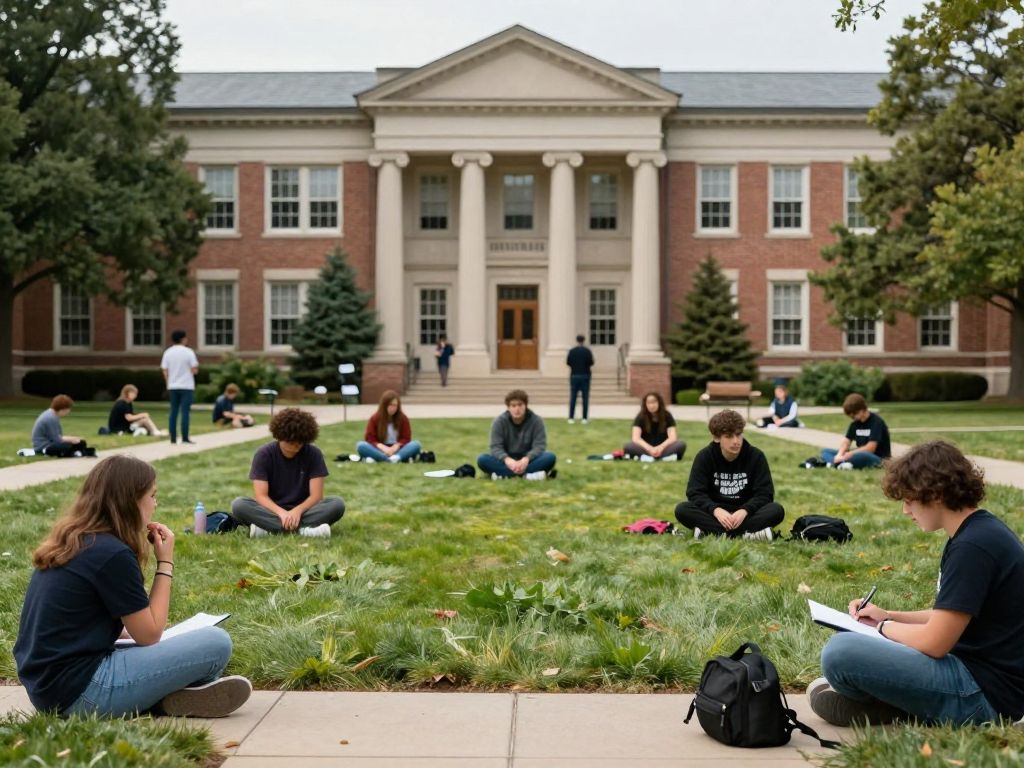News Summary
Arizona’s bioscience industry grapples with significant funding challenges despite remarkable growth over the past two decades. The newly launched Arizona Bioscience Roadmap for 2025-2030 aims to address these issues through increased collaboration and improved funding mechanisms. Industry leaders are urging the protection of crucial financial resources while also facing uncertainties regarding federal support. The sector currently provides around 144,000 jobs in Arizona, with emphasis on the need for sustained support to ensure future growth and innovation.
Arizona is facing significant funding challenges as it seeks to sustain and enhance its burgeoning bioscience industry. Despite notable growth over the past two decades, with four new medical schools and an increase in research funding, recent data indicates that financial hurdles may impede the future potential of this crucial sector.
The newly launched Arizona Bioscience Roadmap for 2025-2030, commissioned by the Flinn Foundation, outlines strategies to address these funding dips while also highlighting goals for the industry. The roadmap emphasizes increased collaboration among stakeholders, accelerated commercialization of bioscience innovations, improved startup ecosystems, strengthened talent pipelines, and enhanced public communication to raise awareness of the industry’s impact.
Heather Carter, who chairs the Bioscience Roadmap Steering Committee, underlines the resilience of the industry and its significance to local lawmakers and community leaders. The biosciences sector encompasses research, development, and commercialization efforts across diverse fields including agriculture, pharmaceuticals, medical devices, and environmental solutions. Currently, this sector provides approximately 144,000 jobs in Arizona.
Since the release of the initial roadmap in 2002, Arizona has developed numerous research hubs and a vibrant startup ecosystem within the biosciences. The establishment of four medical schools—the University of Arizona, Mayo Clinic Alex School of Medicine, Creighton School of Medicine, and Arizona State University School of Medicine and Advanced Engineering—has also expanded career opportunities in the field. Additionally, there are plans for Northern Arizona University’s College of Medicine, which aims to contribute further to workforce development.
A key concern for industry leaders is the protection of funding from Proposition 301, which was initially designed to create a 0.6% sales tax increase to finance research initiatives and was extended for another 20 years in 2018. However, the proposition is no longer protected by voter mandate, raising alarms regarding the reliability of future funding. Joan Koerber-Walker, president and CEO of the Arizona Bioindustry Association, emphasizes the need to safeguard these financial resources to ensure ongoing growth.
In 2022, the state established the Arizona Health Innovation Trust Fund with a goal of raising $200 million specifically for entrepreneurial support and funding in health innovation and workforce development. To date, only about $100,000 has been allocated to this fund, prompting concerns that the support provided may not be sufficient for the industry’s needs moving forward.
Further complicating funding prospects is the uncertainty surrounding federal financing. In the current fiscal year (FY2024), Arizona received around $368 million from the National Institutes of Health, making up about 30% of the total funding for the bioscience industry. However, proposed federal budget cuts could slash health research grants by $190 million, creating additional financial instability for the sector.
Phoenix Mayor Kate Gallego has pointed out the imperative for local funding to bolster the bioscience industry, noting the risks of losing talent and investment should state or local support diminish. Arizona has shown remarkable growth in job creation within the biosciences sector, outpacing national trends. From 2020 to 2023, the state recorded an 8.1% job growth, with non-hospital bioscience jobs rising by 19%. The average annual salary for workers in this field is $87,000, significantly exceeding the state’s average private sector salary.
Industry leaders are urging Arizona’s congressional delegation to take a stand against federal proposals, such as the “Most Favored Nation” policy, which could potentially stifle investment and innovation in the biosciences. As Arizona navigates these challenges, stakeholders are calling for sustained commitment to protect and enhance the state’s vital bioscience sector.
Deeper Dive: News & Info About This Topic
- Arizona’s Bioscience Industry: Flourishing but Funding a Concern
- Wikipedia: Bioscience
- Arizona Bioscience Industry Outpaces Nation in Job Gains
- Google Search: Arizona Bioscience Industry
- Phoenix Bioscience Boom Poised to Improve Health Care
- Encyclopedia Britannica: Bioscience
- How Arizona Bioscience Construction Boom Impacts Region
- Google News: Arizona Bioscience

Author: STAFF HERE PHOENIX WRITER
The PHOENIX STAFF WRITER represents the experienced team at HEREPhoenix.com, your go-to source for actionable local news and information in Phoenix, Maricopa County, and beyond. Specializing in "news you can use," we cover essential topics like product reviews for personal and business needs, local business directories, politics, real estate trends, neighborhood insights, and state news affecting the area—with deep expertise drawn from years of dedicated reporting and strong community input, including local press releases and business updates. We deliver top reporting on high-value events such as the Waste Management Phoenix Open, Cactus League Spring Training, and Arizona State Fair. Our coverage extends to key organizations like the Greater Phoenix Chamber of Commerce and Visit Phoenix, plus leading businesses in technology and healthcare that power the local economy such as Intel and Banner Health. As part of the broader HERE network, including HERETucson.com, we provide comprehensive, credible insights into Arizona's dynamic landscape.





